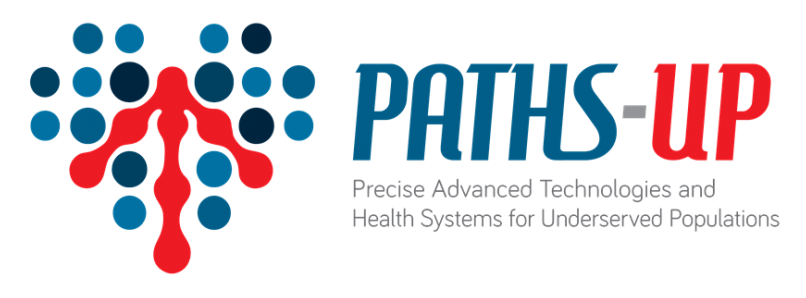Actively Seeking Diversity Is Essential for Research
Outcome/Accomplishment
For ethical and meaningful research outcomes, researchers must represent all facets of the community, including race, ethnicity, gender, age, and more. To find and engage a diverse research workforce requires ongoing outreach, especially with students entering college and graduate school. That is a major thrust for the culture of inclusion team at the U.S. National Science Foundation (NSF)-funded Precise Advanced Technologies and Health Systems for Underserved Populations (NSF PATHS-UP) Engineering Research Center (ERC), headquartered at TAMU, with partners from the University of California at Los Angeles, Rice University, and Florida International University.
Impact/Benefits
The vision of the NSF PATHS-UP is to change the paradigm for the health of underserved populations by developing revolutionary and cost-effective technologies and systems at the point of care. It is essential to have the perspectives of underrepresented minorities in every facet of the Center’s work, so the Center dedicates substantial effort to outreach, especially to recruit and retain undergraduate and graduate STEM students. To this end, in 2023 they performed direct outreach to more than 700 students and advisors to share information about NSF PATHS-UP’s research thrusts and opportunities.
Explanation/Background
In 2023, the NSF PATHS-UP culture of inclusion team attended several underrepresented minority conferences and collaborated with sponsor organizations, with special attention to research opportunities for undergraduates and recruiting graduate students. These organizations included the Society for the Advancement of Chicanos and Native Americans in Science (SACNAS), the California Diversity Forum, and the Annual Biomedical Research Conference for Minoritized Scientists (ABRCMS).
Location
College Station, Texaswebsite
Start Year
Biotechnology and Healthcare
Biotechnology and Healthcare
Lead Institution
Core Partners
Fact Sheet
Outcome/Accomplishment
For ethical and meaningful research outcomes, researchers must represent all facets of the community, including race, ethnicity, gender, age, and more. To find and engage a diverse research workforce requires ongoing outreach, especially with students entering college and graduate school. That is a major thrust for the culture of inclusion team at the U.S. National Science Foundation (NSF)-funded Precise Advanced Technologies and Health Systems for Underserved Populations (NSF PATHS-UP) Engineering Research Center (ERC), headquartered at TAMU, with partners from the University of California at Los Angeles, Rice University, and Florida International University.
Location
College Station, Texaswebsite
Start Year
Biotechnology and Healthcare
Biotechnology and Healthcare
Lead Institution
Core Partners
Fact Sheet
Impact/benefits
The vision of the NSF PATHS-UP is to change the paradigm for the health of underserved populations by developing revolutionary and cost-effective technologies and systems at the point of care. It is essential to have the perspectives of underrepresented minorities in every facet of the Center’s work, so the Center dedicates substantial effort to outreach, especially to recruit and retain undergraduate and graduate STEM students. To this end, in 2023 they performed direct outreach to more than 700 students and advisors to share information about NSF PATHS-UP’s research thrusts and opportunities.
Explanation/Background
In 2023, the NSF PATHS-UP culture of inclusion team attended several underrepresented minority conferences and collaborated with sponsor organizations, with special attention to research opportunities for undergraduates and recruiting graduate students. These organizations included the Society for the Advancement of Chicanos and Native Americans in Science (SACNAS), the California Diversity Forum, and the Annual Biomedical Research Conference for Minoritized Scientists (ABRCMS).

